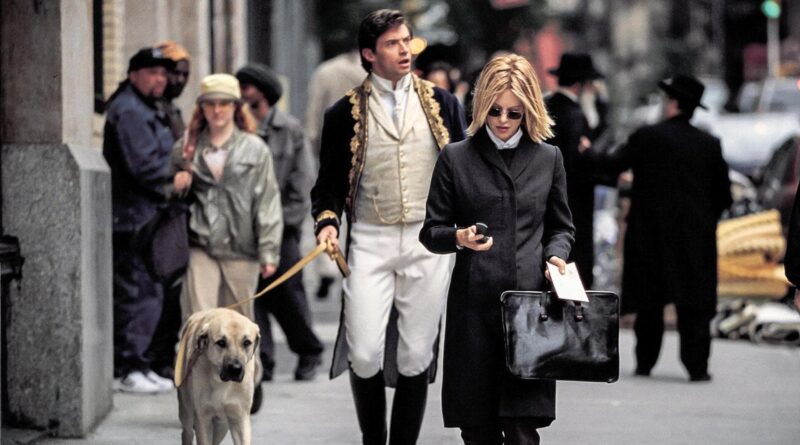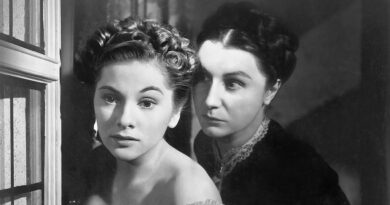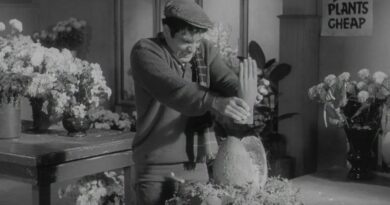Kate & Leopold (2001)
The great failure of Kate & Leopold isn’t that it requires you to suspend disbelief high up – very high, stratospherically high – but that it was made with tremendous earnestness. A combination of a romantic comedy and a time-travel fantasy, it tells a story preposterous and predictable enough to be an insult to human intelligence, and yet the actors go through it so straightforwardly and with such genuine conviction that it seems the intention was for audiences to take it seriously, to unreservedly surrender to its fairy-tale-like disregard for all things plausible. Here is a rare film that would have greatly benefited from grand theatrical gestures, from self-deprecation and camp, from a jaundiced awareness of sitcom-like contrivances.
We begin with Liev Schreiber as Stuart, a present-day New York City scientist, clandestinely taking photos in the New York City of 1876, when the Brooklyn Bridge was still under construction. His nervous meddling catches the attention of an English prince named Leopold (Hugh Jackman), who out of curiosity follows Stuart to the bridge and falls with him into a nonsensical time portal back to the twenty-first century. Before I go any further, let it be known that I describe Stuart as a scientist in the loosest possible sense; sure, we see him with a spy camera and a great many papers with very formulaic doodles, but we get no computers, or blackboards covered from end to end with complicated equations, or even a single beaker filled with steaming dry ice.
Not that it matters a great deal, since Stuart spends most of the film in a hospital, either bandaged buffoonishly like a cartoon character or failing to convince the resident psychologist that he’s a sane man who has made a genuine discovery … and yet he does end up getting released, and with exquisite ease. No, we’re made to focus on the culture clash of Leopold and present-day New York. And yet, for a man from another century, not to mention another country, he adapts remarkably well; in the course of this movie, he will master using a toaster, loading and starting a dishwasher, and even somehow finding modern clothing and shoes in his size to replace his formal nineteenth-century getup.
The snag is that Leopold is historically known as the inventor of the elevator. He arrives in the present day before he even thought up the idea, which means that time has been altered and all of New York’s elevators suddenly disappear. Despite this, elevator shafts remain, and the population is somehow fully aware of what an elevator even is. To the best of everyone’s knowledge, there’s simply a city-wide elevator power shortage. Some alteration of time. But wait, it gets better; it’s established that Stuart is one of Leopold’s descendants, which is to say that, by Leopold being in the twenty-first century, Stuart should not only not be hospitalized but entirely nonexistent, physically and in the memories of everyone who knew him.
The romantic part comes when Leopold falls in love with Stuart’s ex-girlfriend Kate (Meg Ryan), a successful market researcher working on an ad campaign for a brand of margarine. I can buy into the idea of a present-day woman and a man from the past falling in love. What I can’t buy into is Kate luring Leopold – with his fancy dress, charming personality, handsomeness, and stilted manner of speech – into the world of advertising, having him pose as a mannered actor and becoming a spokesperson for the margarine. Amazing, how he can know absolutely nothing about television cameras or even electricity and yet read off a teleprompter with the ease of a professional actor. But of course, he has to eventually get into a huff and argue with Kate about the immorality of peddling known inferior products to the paying masses.
In a related subplot, Leopold acts as a pseudo-Cyrano de Bergerac for Kate’s brother, an actor named Charlie (Breckin Meyer), who has had some trouble wooing a waitress at a local nightclub. Of course Leopold’s advice is successfully heeded, and it seems that, despite coming from an era when women had precious few rights, he doesn’t view them as he seemingly would in his own time, namely as chattel with wealthy family connections. Indeed, he seems entirely and strangely unfazed by the women of today – the fact that they’re allowed to work in high-paying jobs, or free to go their entire lives without marrying or having children. History alone suggests that he should be, as wrong as it is, a chauvinist.
The implication is that, although Kate doesn’t believe Leopold is from the year 1876, she would want to be a part of his world if he actually was. Here’s a prime example of not thinking things through. If a modern-day woman were to travel back to nineteenth-century America, what do you think would appeal to her more? The fact that she wouldn’t be allowed to vote for another forty-four years? That advancements such as antibiotics and conveniences such as dental floss were decades away? That her new wardrobe would consist of corsets and opulent yet constraining dresses? That her career-mindedness would in all likelihood have her deemed hysterical and therefore subject to institutionalization and operations? Ah, but I forgot – Kate & Leopold isn’t interested in little things like believability. All that matters is if the title characters kiss at the end, right? Right?




